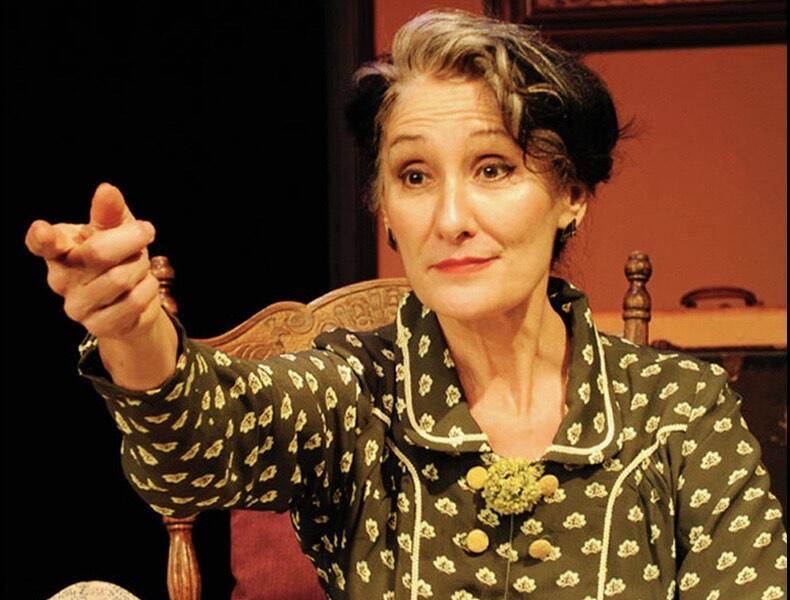7 Questions For Playwright Kres Mersky
JWA: Tell us about your one-woman show, The Life And Times of A. Einstein.
Kres Mersky: This is a piece that tells the story of the indefatigable woman who was Einstein’s secretary for over 40 years. It takes place in Princeton, New Jersey in 1933, when she and the Einstein family have arrived and settled there after fleeing Nazi Germany. It is a series of three different press conferences, where the reluctant secretary is forced to “ fill in” while waiting for the great scientist who is attending an event in his honor. He never arrives, and we get to know this endearing woman as she attempts to placate and “inform” the reporters. It's a portrait of the woman behind the man and their devoted and complicated relationship.
JWA: Your character, Ellen, is based on Einstein’s real-life German-Jewish secretary, Helen Dukas. How did you go about researching Helen, and why was preserving her story important to you?
KM: I read as many books and articles and spoke to as many Einstein historians as I could about his life. This tenacious woman supplied the support and privacy of the scientist. I think it’s absolutely compelling to know the characters that surround a great personage and how these so- called “minor” actors contribute to these individuals' achievements.
JWA: I’d love to hear more about the audience’s response to your show, as it's been performed several times in LA and the surrounding area. What have you learned from theatergoers? Were there any interactions that surprised you?
KM: Audiences broadly seemed to be highly entertained by this engaging character as well as being fascinated by her significance in Einstein’s life. Einstein remains a figure of immense interest to the public. Many audiences wonder if Dukas was in love with the man. I don’t believe it was romantic love.
JWA: How long have you been a performer, and what excites you about performing?
KM: I’ve been an actress and writer for 40 years. It’s a difficult profession in so many ways. But the challenge of creating a role and being able to connect to and move an audience is an immense joy and privilege.
JWA: This isn't the first solo show you’ve developed. You've also portrayed Isabella Duncan, a pioneer of modern dance who lived during the early 1900s. What draws you to this theatrical format?
KM: Solo work is infinitely demanding, but I think a successful solo performance can draw an audience deeply into a character and their story in a very powerful way.
JWA: In addition to being an accomplished writer and actress, your artistic practice also extends to visual art and painting. How are these creative processes related to you?
KM: I think at heart, all the arts spring from a deep impulse to express the deepest parts of oneself that you might not otherwise be able to in daily life. It can be a profound and exhilarating release.
JWA: Do you have any pre-show rituals backstage?
KM: Sometimes I listen to music to energize me. I have some ready calming “affirmations” I go over. And of course, a quick prayer to the “Theatre Gods” to guide me through.







